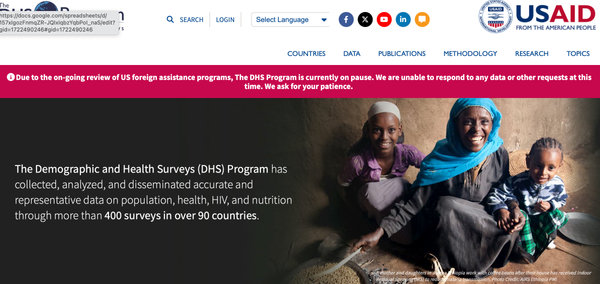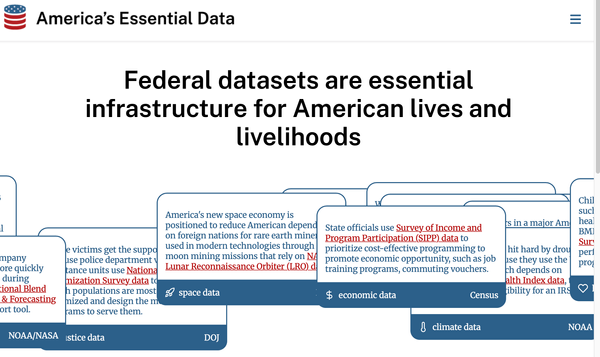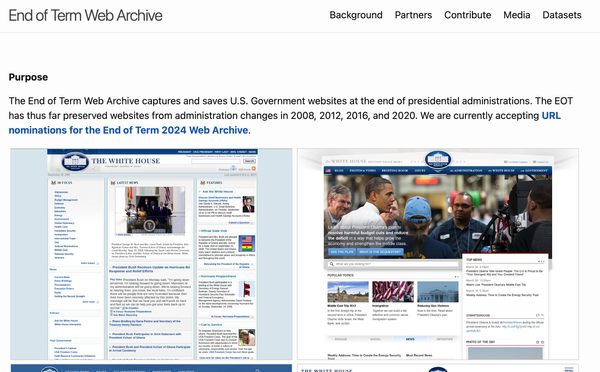The CDC’s Youth Risk Behavior Survey: A Data User Story
Data from the Youth Risk Behavior Survey now represent the only source of updated, representative data on eating disorders among US youth.

As part of our public data user stories, we received one on the CDC’s Youth Risk Behavior Survey. We share this story by @albeccia.bsky.social with permission.
I am a social and psychiatric epidemiologist based at Harvard Medical School and the Harvard School of Public Health, and faculty with Harvard's Strategic Training Initiative for the Prevention of Eating Disorders (STRIPED) and LGBTQ Health Center of Excellence. My team’s research focuses on improving the surveillance of eating disorders - a severe mental illness associated with incredibly high morbidity and mortality - among youth. We’ve been successful in adding relevant items to several state Youth Risk Behavior Surveys, providing some of the first representative estimates of eating disorders among US youth in over a decade. The results have been alarming: prevalence is alarmingly high, and disproportionately so among youth of color and LGBTQ+ youth. We’ve written several manuscripts to share these findings with our public health peers, as well as with our community organization partners who are using this work to guide resource allocation (e.g., affinity support groups) and inform their advocacy efforts.
Data from the Youth Risk Behavior Survey now represent the only source of updated, representative data on eating disorders among US youth. The loss of these data would be devastating for our ability to track, understand, and ultimately address eating disorders, including inequities in risk and prevalence. We are already experiencing significant impairments - the CDC's decision to not process gender identity data means that we won't be able to obtain estimates of eating disorders among trans youth, who experience particularly high rates of eating disorders. How can we engage in effective, inclusive surveillance when we don't have data on one of the most impacted groups?
Moreover, because of our findings pertaining to LGBTQ+ youth, our manuscripts have been put in limbo by Executive Order 14168 and the resultant censorship of federal scientists in their ability to study and communicate accurate information about gender. Specifically, because these manuscripts are co-authored with our federal scientists colleagues, they are either being retracted, being put on hold, or having to be fully revised to remove our key findings - those related to LGBTQ+ youth. And yet, as mentioned, we have community partners waiting on these findings to be able to acquire funding for essential services and resources they provide to support youth mental health, at a time when our mental health crisis is only escalating. This is targeted erasure and censorship and it’s just one example of how the silencing of science is going to have real negative impacts on our communities.
While our efforts cannot address all the concerns in this story, we have cataloged data rescue efforts for CDC data in our Data Rescue Tracker. In addition, STAT News has an ongoing post documenting the changes in CDC data. RestoredCDC is another project to retain the pre-January 20, 2025, CDC website. If you know of other efforts, feel free to share.
We at the DRP know the value of this data for our patrons, for the public, and for the future. We encourage you to talk with everyone about how you use public data, and we would love to hear from you. Fill out our form to make your voice heard.




